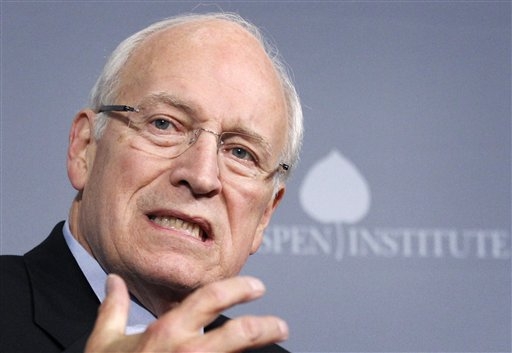
WASHINGTON (AP) — Former Vice President Dick Cheney was released from the hospital Tuesday, 10 days after getting a new heart, his office said.
Cheney, 71, received the organ from an unknown donor on March 24 at Inova Fairfax Hospital in suburban Falls Church, Virginia.
"As he leaves the hospital, the former vice president and his family want to again express their deep gratitude to the donor and the donor's family for this remarkable gift," aide Kara Ahern said in a statement.
Cheney waited nearly two years for the transplant. His lifelong history of heart disease includes five heart attacks, with the first one striking him at age 37 and the most recent one in 2010.
That year, Cheney also had surgery to implant a small pump to help keep his weakened and diseased heart beating. The "left ventricular assist device," or LVAD, helps a person live a fairly normal life while awaiting a heart transplant, although some people receive it as permanent therapy. It was one the few steps left, short of a transplant, to keep Cheney alive in the face of what he had acknowledged was "increasing congestive heart failure."
In January 2011, Cheney said he was getting by on the battery-powered device and hadn't made a decision on a transplant. But he said he'd "have to make a decision at some point whether I want to go for a transplant."
More than 3,100 people are on a national waiting list to receive a new heart. Just over 2,300 heart transplants were performed last year, according to the United Network for Organ Sharing. Some 330 people died while waiting.
According to UNOS, 332 people over age 65 received a new heart last year. The majority of transplants occur in 50- to 64-year-olds. Cheney's surgery led some to question whether he was too old to be given a new heart.
The odds of survival are good. More than 70 percent of heart transplant patients live at least five years, although survival is a bit lower for people over 65.
Cheney was President George W. Bush's vice president for eight years, beginning in 2001, and was a lightning rod for criticism. Opponents said he often advocated a belligerent U.S. stance in world affairs during the wars in Iraq and Afghanistan.